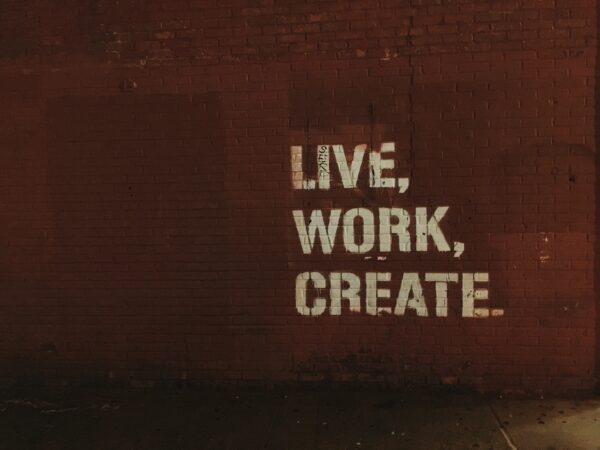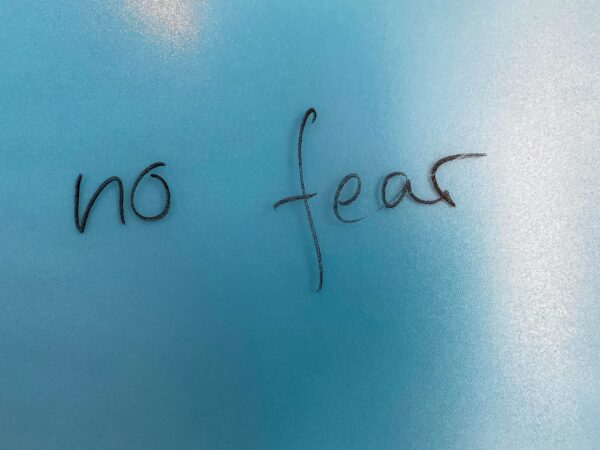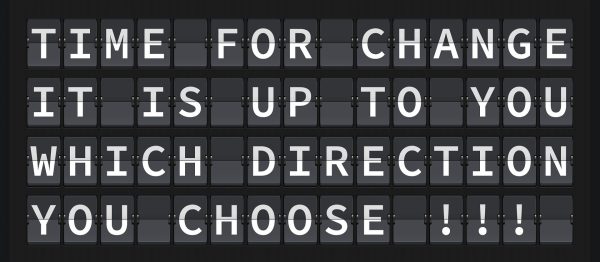In this series which appears in In Focus Magazine from The Guild of Television Camera Professionals, Jo Hodges and Liz Bell, camera operators and co-founders of Fusion Film and TV answer questions from readers and fellow camera operators on industry issues and give advice where needed.
In addition to camera operating/supervising and running their production company, Jo and Liz are both qualified transformative life coaches who work specifically with those in the media. You can read more about them and their work here.
This is the first Ask Jo & Liz of the year so firstly, happy new year to you all, and we hope you have had a great beginning to the year so far. It’s been quite a difficult start for a lot of us with the cost of living crisis and spiralling costs (not so spiralling wage increases, sadly), but with my slightly older and wiser head on, I know this too will pass.
Our mindsets can really help us through these difficult times, and being in the moment can help even more. Not getting caught up in the fabricated ifs and buts in your head but really just dealing with the now. If ever there was a time to practice mindfulness, it’s now, so maybe if you are feeling a little reticent about your year ahead, concentrate on what you know to be true and do a little research on basic Mindfulness. It could be the beginning of a wonderful new approach to work and life. Good luck! Jo and Liz
Now back to your questions:
Q1. I feel like all I do is Sleep, Eat and Travel to my next job! Can you recommend some effective time management techniques so I can start to plan my “work-life balance” everyone is always going on about?!
I totally understand how you feel, and trust me, most of us have been there, and even now sometimes with all my coaching knowledge, I still find myself feeling overwhelmed with my workload. It happens! But the important thing is to recognise it and do something about it when you do.
It often feels like we aren’t in control, and that is actually very convenient for us to go along with because we don’t have to take responsibility for our situations and can blame everything on everyone else for our lack of time. We are very good at pretending to ourselves that things are out of our control and that we are the victims of other people’s whims because it means we don’t have to do anything ourselves about it. We likely know it would make us have to do uncomfortable things like saying NO! So we avoid it instead.
So that’s my first suggestion – to say “No” more when you don’t want to do a job or feel it’s infringing on your time. Other ideas are picking some routines you could work into your pattern like one weekend off in every 4, or making sure on average you are talking at least two days off a week. Now I know that sometimes there are jobs that happen in long runs but making sure once they are completed that you have days off to recover would be another routine you can establish. It’s about creating good routines of rest and seeing your friends and family on a regular basis to feel they are part of your life and not an occasional afterthought. You can begin by starting with some routines that you are going to stick to for a month so you don’t feel too overwhelmed at saying no occasionally but beginning to actually approach this change will be enough to make you get a really good feel for how it might work more permanently in your life. – Liz
Q2. I feel like I constantly have to tiptoe around my production manager whose default is to say NO to every creative decision. They are well known for it too but I don’t want to waste time and energy arguing with them, how can I work to their rules while not compromising my own creative identity?
Ok, so this could be a good time to practice perspective changing because you are both coming at the same project, presumably wanting the best results but with slightly different priorities.
It’s hard as a creative person, especially when we are sometimes having to battle for the bare minimum with our rates and expenses, but unfortunately, the production manager’s job is to bring the project in on or under budget, and for their part, I think creativity can get lost in that.
I’m willing to guess they may feel the same way sometimes about us pushing for more money/time/expenses for what seems unnecessary additions or better equipment (most common in my experience). So how do we diplomatically resolve this so everyone can enjoy their work and get the best out of it? Perspective is everything! Firstly, it isn’t personal, so don’t make it so, and secondly, we often have to meet somewhere in the middle. Having an understanding of where they are coming from will help.
Communicating your creative vision clearly and suggesting how that could work within their budget would help. Obviously, there are going to be times you will disagree and clash, and you won’t always have your way, but remembering you are part of a team and, unless you hold the purse strings, generally will have to compromise or get very creative with suggestions.
Not letting it get you down will also be much better for you overall as creativity springs from challenges and it can end up really opening new ideas. Thinking on your feet, coming up with (cheaper) alternatives, etc.
Lastly, if you really feel you can’t work with certain PMs due to personality, then I would politely decline when possible (on the basis of differing personalities if you want to be honest) as nobody needs conflict in their working lives when it can be avoidable. – Jo









